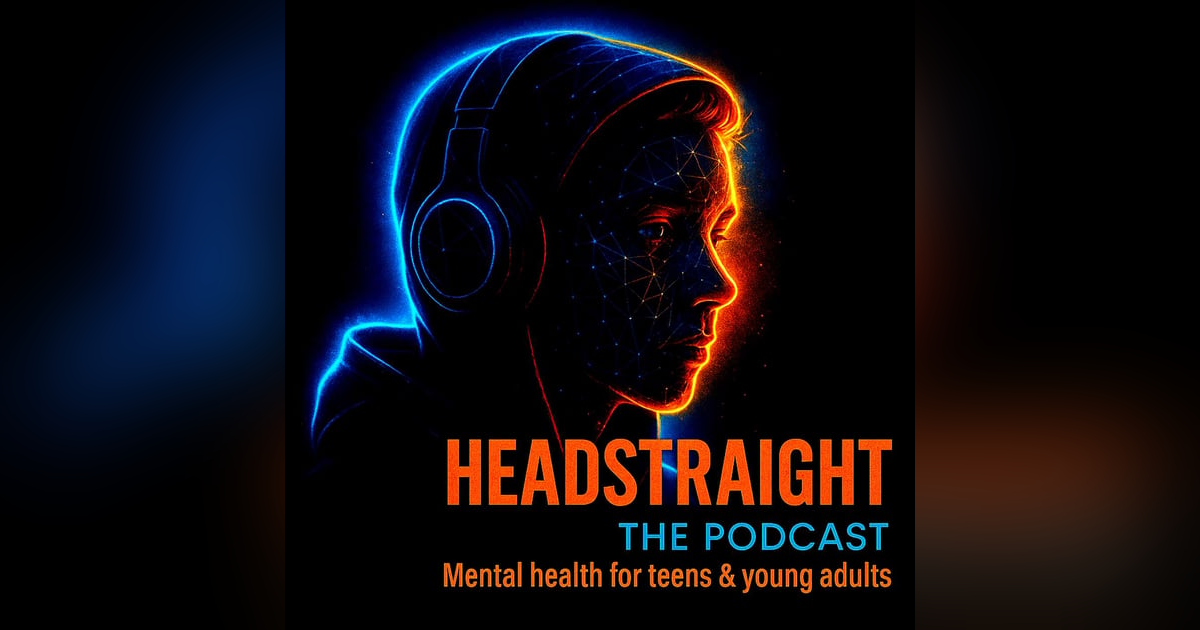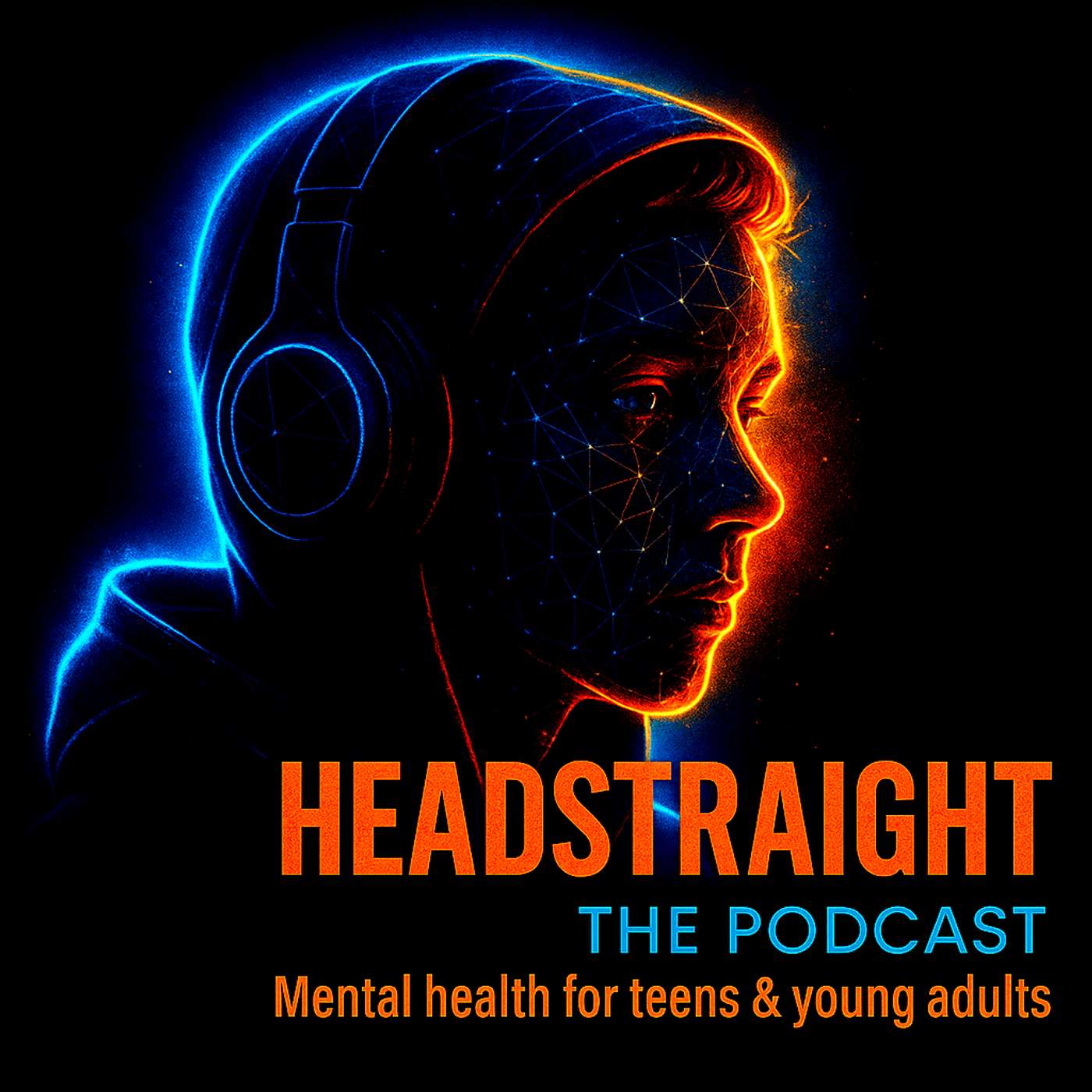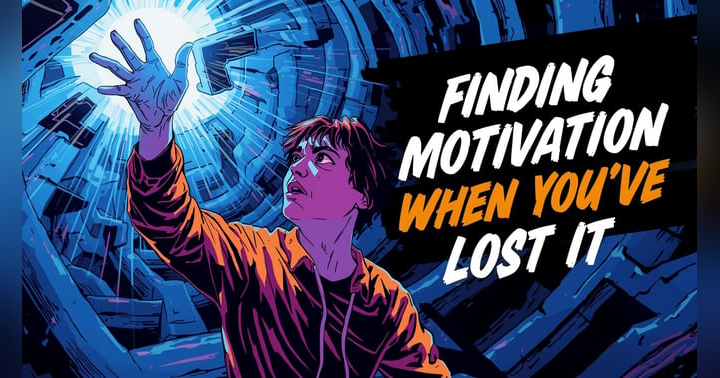How to Find Motivation When You’ve Got Nothing Left


In this episode of Headstraight, we’re diving deep into the challenges of losing motivation and uncovering practical strategies for improving teen mental health. It's common for teens to hit a slump where motivation vanishes, leading to self-doubt and emotional decline. We’ll explore how feelings of shame and guilt contribute to this loss of drive, and provide actionable tools to help restore your motivation.
Join host Mark Taylor as we discuss why motivation isn’t rooted in laziness, but in understanding the factors affecting teen self-esteem and mental health. You’ll learn to break the cycle of feeling stuck, overcome self-sabotage, and reconnect with your purpose while building resilience. Let’s make better choices together that foster emotional well-being. Don’t let losing motivation keep you trapped; listen in for a compassionate approach to reigniting your drive!!
Want to get involved?
I’d love to hear from you:
- Send me a message → headstraight.co.uk/contact
- Leave me a voice note → headstraight.co.uk/voicemail
- Share your feedback by leaving a review (it helps more young people find the podcast) → headstraight.co.uk/reviews/new
Explore more from Headstraight:
- Read the blog version of every episode, packed with extra insights on self-sabotage, motivation, resilience, and mental health → headstraight.co.uk/blog
- Find out more about me, the host, and why I started this podcast → headstraight.co.uk/about
Need support right now?
If you’re struggling with anxiety, depression, or in crisis, visit our Resources page
for helplines, mental health services, and support options available in the UK and across the world.
Mark:
My name's Mark, and you're listening to Head Straight. Hello, you lot, and welcome back. Today, we're gonna be taking a look at finding motivation when you've lost it. Because let's be realistic about this. There are going to be times when your spark just dies.
Mark:
You know what you should do, maybe even what you want to do, but the drive's gone. You sit there thinking, what's the point? You tell yourself that you'll finally reply to those messages, but instead you leave people unread and you just let the guilt build. You promise that you're going to sort out your room, but the pile of clothes on the chair just stares back at you for another week. You keep saying that you're going to pick up your guitar or your sketchbook or that college application form, but somehow you never touch it.
Mark:
But here's the truth. That doesn't make you lazy. That just means that you're normal. Motivation isn't a switch that you flip. It's something that you have to generate again and again, especially when life's knocked it out of you.
Mark:
And that's exactly what we're digging at today. We're going to take a look at why motivation disappears in the first place, and we're going to take a look at the myth of waiting until you feel ready. And then I'm gonna give you three ways to spark your drive when it feels completely gone. So first, let's take a look at why motivation disappears. Because motivation doesn't just vanish randomly.
Mark:
It's usually being smothered by something deeper. For instance overload. Maybe you've got 10 things that are pulling at you. Homework, DMs, part time shifts, family drama. Your brain just can't decide where to start, so it chooses the easiest option to do nothing.
Mark:
Now that freeze isn't laziness. It's your nervous system just saying to you too much can't compute. And then there's fear. Maybe you want to share your art online, or apply for that job, or talk to someone you like, but the fear of judgement or rejection kicks in. Doing nothing feels so much safer than risking a bruise to your ego.
Mark:
Then there's disconnection. You'd simply forget why it matters. That guitar that you were buzzing about two months ago, now it's gathering dust because you've lost sight of the reason that you picked it up in the first place. And here's the key. When motivation disappears, most people go straight to I'm lazy.
Mark:
But laziness is almost never the real issue. It's overload, fear, or disconnection dressed up as laziness. I just want you to stop and just reflect for a second. The last time that you lost motivation, which one of these was really behind it? Overload?
Mark:
Fear? Or had you just lost your reason why? Now one of the biggest traps that you'll ever fall into is telling yourself, I'll do it when I feel motivated. Okay. Here's the twist.
Mark:
Motivation doesn't knock on your door first. It shows up because you started moving. Think about it. You don't feel like tidying your room, but once you pick up that first t shirt, suddenly you're in motion. You don't feel like messaging someone back, but once you say the first hey, then a conversation flows.
Mark:
You don't feel like drawing, but once your pencil hits the page, then there's much more chance of ideas starting to surface. Motivation is a side effect of action. Waiting until you feel like it is kinda like waiting until you feel fit before you start exercising. You're kinda gonna wait forever. So the better question isn't do I feel motivated?
Mark:
It's what's the smallest step that I can take right now to spark the momentum? Now here's the core truth. Motivation is tied to meaning. When your why gets blurry, your drive just evaporates. Filling out a college application?
Mark:
Well, there's no point to it if you're doing it because you should. But if it's tied to studying something that you actually care about or getting out of your town and building independence, then that's a why. Practicing music scales is mind numbing if it's just to get better, but if it's about playing that one song that you want your friend to hear or proving to yourself that you can perform live, then that's a why. Dragging yourself to a part time job is exhausting if it's just for the money. But if that money is fuelling your independence, such as driving lessons, moving out, saving for a trip, suddenly it's not just a shift.
Mark:
It's a stepping stone towards that goal. When the why is strong, the motivation has a reason to show up. When the why is weak or borrowed from someone else, no wonder the spark disappears. So just ask yourself, if I nailed this thing that I'm avoiding, what bigger win would it actually give me? So let's take a look at how we can reignite this motivation.
Mark:
Now if some of what you're about to hear sounds familiar, then that's good because it should. Because motivation isn't a standalone problem. It's the thread that runs through everything that we've talked about so far in this season. When we talked about setbacks, we learned how to get back up when life knocks you down. When we talked about self sabotage, we explored how your own fears can pull the plug on your progress.
Mark:
When we talked about feeling ready, we discovered that action always comes before motivation. This is where it all ties together. Because finding motivation when you've lost it isn't about discovering some secret trick. It's about remembering what you already know and adding a few more tools to the box. Now the first one is borrowing from the future you.
Mark:
And yes, you've heard about this one before, but we're going to take it a bit deeper. When you're drained, your brain only sees now. The tired version of you. The stuck version. The one who just wants everything to stop.
Mark:
But motivation doesn't live there. It lives with the future you. The version of you who's already done the hard bit and is standing on the other side, relieved, proud, and grateful that you didn't give up. So the next time you're sitting there thinking, I can't be bothered. Try this.
Mark:
Close your eyes and picture the future version of you. Not perfect, not superhuman, just a little further ahead. What are they doing? What's different in their life because you showed up today? That's who you're working for.
Mark:
Because the more clearly you can see the future you, the more connected you feel to them. And that connection is the fuel. Motivation isn't about pushing yourself harder. It's about remembering who you're becoming. The second thing you can try is change your state, not your mind.
Mark:
Because when motivation dies, most people go to war with their thoughts arguing, bargaining, guilt tripping themselves into action. Now this just doesn't work. You can't think your way out of a flat mood, but you can move your way out of it. Your body is the ignition key. Move even a little and you can change your internal chemistry.
Mark:
Dopamine, oxygen circulation, all of this shifts. And with that, your brain then starts to follow. It doesn't have to be a workout. Maybe just go for a walk, stretch, put on a song that makes you feel something and just move. Change your posture.
Mark:
Sit upright. Pull your shoulders back. Take a breath that reaches your ribs. The smallest physical change can break the mental deadlock. It's like shaking up a snow globe.
Mark:
The picture inside is still the same, but now it's alive again. So next time you feel that heavy flat I can't do this energy, stop thinking and start moving. You're not chasing momentum, you're resetting it. Now the third thing that you can try is the create micro momentum. When you're deep in a motivational slump, big goals feel just impossible.
Mark:
So stop trying to scale the mountain and start building momentum from the pebbles instead. Micro momentum is about stacking tiny wins. Three quick actions that tell your brain, oh, I'm in motion again. Now these can be ridiculously small. Reply to a message, tidy one corner, and pour a glass of water and drink it.
Mark:
Now it sounds like nothing, but each small action sends a new signal to your brain. I'm doing something. And the brain loves progress. Even tiny progress. Every tick of movement restarts the reward system that's been sitting idle.
Mark:
And here's the trick. Link these three actions together. One two three back to back. Not to get results, but to remind your body of what progress actually feels like. Micro momentum doesn't care what you do.
Mark:
It only cares that you start. So let's start bringing this together. Everything that we covered, from reconnecting with your why, to shrinking the mountain, to borrowing from the future you, it all points to one truth. Motivation isn't magic, it's maintenance. You don't wait for it to reappear.
Mark:
You rebuild it piece by piece. Sometimes that means reconnecting to meaning. Sometimes it means moving your body before your brain catches up. And sometimes it just means stringing together three tiny actions to remind yourself that you're still capable of movement. The Spark always comes back, but it doesn't find you sitting still.
Mark:
It finds you in motion. So just stop and think for a second. Which one of these three would help you most right now? Picturing the future you, moving your body, or stacking micro wins? So choose one and try it before the end of the day.
Mark:
Don't wait to feel ready. Just start the spark. Now if you've been following these episodes from the start, you'll notice something. Every little bit of progress begins with an awkward moment. The awkward middle, the awkward restart, and now the awkward spark.
Mark:
That first flicker of effort after you've been stuck. It never feels magical. It feels weird. It feels clumsy, underwhelming, and almost disappointing. No one talks about that bit.
Mark:
The moment that you finally start moving again, but it doesn't feel like progress. You hit send on a job application and instantly regret it. You pick up your guitar, but your fingers feel like they've forgotten what they're doing. You sit down to write, and every sentence just sounds awful. That that's the awkward spark.
Mark:
It's small. It's uncomfortable. It rarely feels inspiring, but it's the exact moment that everything starts shifting. Because here's what's really happening underneath. Your brain is re engaging.
Mark:
All those circuits that have been sitting idle, the ones that thrive on effort, reward and connection, they're all starting to wake up again. And at first, it feels off, like switching on old lights that flicker before they shine. That awkward spark isn't supposed to feel good, but it's supposed to feel real. It's proof that you've broken the dead stop, that you've gone from stuck to moving, from overthinking to doing. And just like lighting a fire, the first strike never looks like much.
Mark:
It's a weak flame, maybe even just a bit of smoke. But give it air, protect it from the wind, and it will grow. So if you're at that stage, the early clumsy one, where everything just feels like effort and nothing feels worth it, then just hear this. That's not a sign that you're failing. It's the clearest sign that you've started.
Mark:
Now you're not waiting for motivation anymore. You're actually now building it. And just like last time when we talked about the awkward middle, it's the same truth in a different phase. Awkward means alive. Now here's the gold.
Mark:
The awkward spark isn't about feeling inspired. It's about ignition. It's your brain catching on again. So protect the spark, feed it, and let it grow. Because one spark, awkward, uneven, and fragile as it feels, is all you need to light the fire that lasts.
Mark:
So let's just summarize what we've done. Here's what we've uncovered. Motivation disappears because of overload, fear, or losing your why. Waiting to feel ready is a trap. Action creates motivation.
Mark:
And you've now got three tools: shrink the task, anchor your WHY, and borrow from the future YOU. So here's your challenge for this week. I want you to pick one thing that you've been avoiding, and then I want you to shrink it. Make it so small it's almost laughable. Then write down your real why.
Mark:
The one that matters to you, not to everyone else. And at that moment when you're thinking of quitting a task, I just want you to stop. And then I want you to ask yourself, what would future May thank me for if I stick with this? Because motivation isn't missing, it's something that you build spark by spark until the flame catches. So let's take a look at what we're doing next week.
Mark:
Even once you've sparked motivation, the world doesn't make it easy to keep it. Notifications, drama, temptations everything's designed to pull you off track. So in episode four, we're going to tackle how to stay focused and stop getting distracted. Because finding your spark is step one. Keeping it burning, that's how you build momentum that lasts.
Mark:
So are you up for the next episode? Of course, you are.













